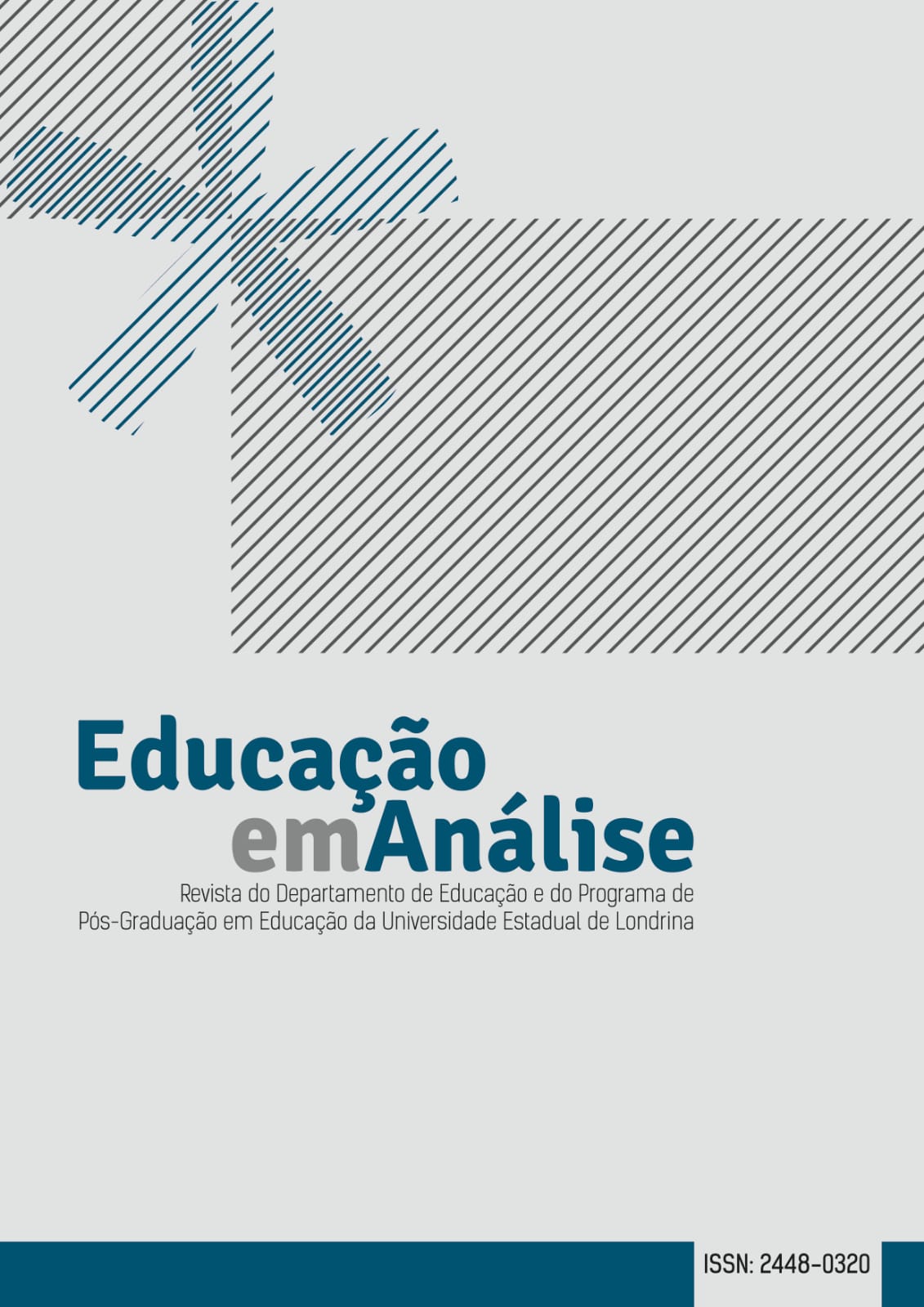The spanish law and the evasion of the portuguese/spanish Unioeste/Cascavel letters course: phenomena that intersect
DOI:
https://doi.org/10.5433/1984-7939.2023v8n2p431Keywords:
Espanhol. Lei do Espanhol. Mercado de trabalho. Evasão.Abstract
This paper investigates the relationship between the repeal of Law No. 11,161/2005 and evasion in the degree course in Portuguese/Spanish Letters of Unioeste/Cascavel. With the implementation of the Spanish Law, language teaching courses were opened in public schools, the discipline entered the curriculum of many institutions, as well as the opening of undergraduate courses to train professionals in the area and meet the demands of the labor market. However, even before all institutions were able to fully meet the rules of that law, its repeal occurred in 2017, which again impacted the labor market. In this sense, this research aims to understand to what extent the repeal of the law influenced the motivations for evasion of the Portuguese/Spanish Letters course of Unioeste/Cascavel. The study started from readings about linguistic policies, under the theoretical assumptions of Lagares (2018), Calvet (2007) and Martins (2016). From the analysis of the answers obtained in the application of a questionnaire to students enrolled in the course, we found that the repeal of the Spanish Law causes discouragement in the research subjects, who tend to abandon the course due to lack of professional appreciation.
Downloads
References
BRASIL. Lei n. 11.161, de 5 de agosto de 2005. Dispõe sobre o ensino da língua espanhola. Brasília, DF: Presidência da República, 2005. Disponível em: http://www.planalto.gov.br/ccivil_03/_ato2004-2006/2005/lei/l11161.htm. Acesso em: 3 jun. 2021.
BRASIL. Lei n. 13.415, de 16 de fevereiro de 2017. Altera as leis n. 9.394, de 20 de dezembro de 1996, que estabelece as diretrizes e bases da educação nacional, e 11.494, de 20 de junho 2007, que regulamenta o fundo de manutenção e desenvolvimento da educação básica e de valorização dos profissionais da educação, a consolidação das leis do trabalho - CLT, aprovada pelo decreto-lei n. 5.452, de 1 de maio de 1943, e o decreto-lei n. 236, de 28 de fevereiro de 1967; revoga a lei n. 11.161, de 5 de agosto de 2005; e institui a política de fomento à implementação de escolas de ensino médio em tempo integral. Brasília, DF: Presidência da República, 2017. Disponível em: http://www.planalto.gov.br/ccivil_03/_ato2015-2018/2017/lei/l13415.htm. Acesso em: 10 nov. 2021.
BRASIL. Lei n. 9.394, de 20 de dezembro de 1996. Estabelece as diretrizes e bases da educação nacional. Brasília, DF: Presidência da República, 1996. Disponível em: http://www.planalto.gov.br/ccivil_03/leis/l9394.htm. Acesso em: 10 nov. 2021.
BRASIL. Ministério da Educação. Base nacional comum curricular. Brasília, DF: Ministério da Educação, 2018. Disponível em: http://basenacionalcomum.mec.gov.br/. Acesso em: 10 nov. 2021.
CALVET, Louis-Jean. As políticas linguísticas. São Paulo: Parábola, 2007.
CARVALHO, Julyana Peres. O ensino de espanhol na escola pública: comparando realidades. In: INTERNATIONAL CONGRESS OF CRITICAL APPLIED LINGUISTICS, 2015, Brasília. Anais [...]. Brasília: Universidade de Brasília; Universidade Estadual de Londrina, 2015. p. 849. Disponível em: https://bit.ly/2ReJ5v5. Acesso em: 20 mar. 2020.
GONZÁLEZ, Neide Maia. A lei 11.161, as orientações curriculares e as políticas públicas de formação de professores: a história de um descompasso entre o dizer e o fazer. In: CONGRESSO BRASILEIRO DE HISPANISTAS, 5., 2008, Belo Horizonte. Anais [...]. Belo Horizonte: Universidade Federal de Minas Gerais, 2008. p. 3183. Disponível em: http://www.letras.ufmg.br/espanhol/Anais/anais_paginas_%2030793467/A%20lei%2011.161.pdf. Acesso em: 20 mar. 2020.
LAGARES, Xoán Carlos. Qual política linguística?: desafios glotopolíticos contemporâneos. São Paulo: Parábola, 2018.
MARTINS, Viviane Ferreira. Las políticas lingüísticas de enseñanza y difusión de español / lengua extranjera (ELE) en el mercosur. Madri: Onomázein, 2016.
TORRENTES, Greice Castela; VERGNANO-JUNGER, Cristina de Souza. Tecnologia combina com sala de aula: aplicativos para professores experimentarem nas aulas de línguas. Minas Gerais: Navegando, 2021. DOI: https://doi.org/10.29388/978-65-86678-83-3
Downloads
Published
How to Cite
Issue
Section
License
Copyright (c) 2023 Educação em Análise

This work is licensed under a Creative Commons Attribution-NonCommercial 4.0 International License.
Os artigos publicados na Revista Educação em Análise estão sob a Licença Creative Commons Atribuição 4.0 Internacional, garantindo Acesso Aberto. Deste modo, os autores mantêm os direitos autorais de seus trabalhos e, em caso de republicação, solicita-se que indiquem a primeira publicação nesta revista. Essa licença permite que qualquer pessoa leia, baixe, copie e compartilhe o conteúdo, desde que a devida citação seja feita. Além disso, autoriza a redistribuição, adaptação e criação de obras derivadas em qualquer formato ou meio, incluindo uso comercial, desde que a atribuição à revista seja mantida.
A revista se reserva o direito de efetuar, nos originais, alterações de ordem normativa, ortográfica e gramatical, com vistas a manter o padrão culto da língua e a credibilidade do veículo. Respeitará, no entanto, o estilo de escrever dos autores. Alterações, correções ou sugestões de ordem conceitual serão encaminhadas aos autores, quando necessário.
As opiniões emitidas pelos autores dos artigos são de sua exclusiva responsabilidade.









